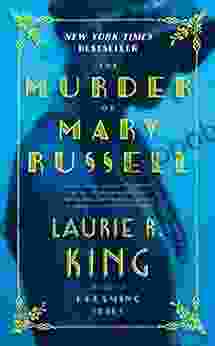The Politics of Training Reforms in Australia, Ireland, and the United Kingdom


4.4 out of 5
| Language | : | English |
| File size | : | 5212 KB |
| Text-to-Speech | : | Enabled |
| Screen Reader | : | Supported |
| Enhanced typesetting | : | Enabled |
| Word Wise | : | Enabled |
| Print length | : | 220 pages |
The world of work is changing rapidly, and countries around the globe are grappling with the challenge of how to ensure that their workers have the skills they need to succeed in the 21st-century economy. In response, many governments have implemented training reforms aimed at improving the quality and accessibility of training programs.
However, the politics of training reforms are complex, and there is no one-size-fits-all approach. In this book, we examine the politics of training reforms in three countries: Australia, Ireland, and the United Kingdom. We provide a comparative analysis of the different approaches to training policy and the factors that have shaped their development.
The Australian Experience
Australia has a long history of training reforms, dating back to the early 1990s. These reforms have been driven by a number of factors, including the changing nature of the labor market, the increasing demand for skilled workers, and the need to improve the productivity and competitiveness of Australian businesses.
One of the most significant training reforms in Australia was the of the Australian Qualifications Framework (AQF) in 1995. The AQF is a national framework that classifies all qualifications in Australia, from certificates to doctorates. The AQF has made it easier for individuals to understand the value of their qualifications and to progress from one level of qualification to the next.
Another major training reform in Australia was the of the VET FEE-HELP scheme in 2009. The VET FEE-HELP scheme provides loans to students to help them pay for vocational education and training (VET) courses. The scheme has been controversial, with critics arguing that it has led to a decline in the quality of VET courses and that it has made it harder for students to repay their loans.
The Irish Experience
Ireland has also implemented a number of training reforms in recent years. These reforms have been driven by a number of factors, including the need to improve the competitiveness of the Irish economy, the increasing demand for skilled workers, and the need to reduce unemployment.
One of the most significant training reforms in Ireland was the of the National Training Fund (NTF) in 1998. The NTF is a government-funded program that provides grants to businesses to help them train their employees. The NTF has been successful in increasing the number of people participating in training, and it has also helped to improve the quality of training programs.
Another major training reform in Ireland was the of the National Qualifications Framework (NQF) in 2003. The NQF is a national framework that classifies all qualifications in Ireland, from certificates to doctorates. The NQF has made it easier for individuals to understand the value of their qualifications and to progress from one level of qualification to the next.
The United Kingdom Experience
The United Kingdom has also implemented a number of training reforms in recent years. These reforms have been driven by a number of factors, including the need to improve the productivity and competitiveness of the UK economy, the increasing demand for skilled workers, and the need to reduce unemployment.
One of the most significant training reforms in the UK was the of the National Vocational Qualification (NVQ) system in 1986. The NVQ system is a competency-based system that assesses individuals' skills and knowledge in a particular occupation. The NVQ system has been successful in increasing the number of people participating in training, and it has also helped to improve the quality of training programs.
Another major training reform in the UK was the of the Train to Gain program in 2001. The Train to Gain program provides grants to businesses to help them train their employees. The program has been successful in increasing the number of people participating in training, and it has also helped to improve the quality of training programs.
The politics of training reforms are complex, and there is no one-size-fits-all approach. However, the experiences of Australia, Ireland, and the United Kingdom provide some valuable insights into the factors that can influence the success of training reforms.
One important factor is the level of political commitment to training reforms. In all three countries, training reforms have been successful when they have been backed by strong political leadership. Another important factor is the involvement of key stakeholders, such as businesses, trade unions, and training providers. In all three countries, training reforms have been successful when they have been developed in consultation with these stakeholders.
Finally, it is important to ensure that training reforms are tailored to the specific needs of the country. In all three countries, training reforms have been successful when they have been designed to meet the specific challenges and opportunities facing the country.
Free Download Your Copy Today!
The Politics of Training Reforms in Australia, Ireland, and the United Kingdom is a valuable resource for anyone interested in the politics of training reforms. The book provides a comprehensive overview of the different approaches to training policy in these three countries, and it offers some valuable insights into the factors that can influence the success of training reforms.
To Free Download your copy of the book, please visit our website.
Free Download Your Copy Today!
4.4 out of 5
| Language | : | English |
| File size | : | 5212 KB |
| Text-to-Speech | : | Enabled |
| Screen Reader | : | Supported |
| Enhanced typesetting | : | Enabled |
| Word Wise | : | Enabled |
| Print length | : | 220 pages |
Do you want to contribute by writing guest posts on this blog?
Please contact us and send us a resume of previous articles that you have written.
 Book
Book Novel
Novel Page
Page Chapter
Chapter Text
Text Story
Story Genre
Genre Reader
Reader Library
Library Paperback
Paperback E-book
E-book Magazine
Magazine Newspaper
Newspaper Paragraph
Paragraph Sentence
Sentence Bookmark
Bookmark Shelf
Shelf Glossary
Glossary Bibliography
Bibliography Foreword
Foreword Preface
Preface Synopsis
Synopsis Annotation
Annotation Footnote
Footnote Manuscript
Manuscript Scroll
Scroll Codex
Codex Tome
Tome Bestseller
Bestseller Classics
Classics Library card
Library card Narrative
Narrative Biography
Biography Autobiography
Autobiography Memoir
Memoir Reference
Reference Encyclopedia
Encyclopedia Dr Felicity Gray
Dr Felicity Gray Wilhelm Hauff
Wilhelm Hauff Alyson Belle
Alyson Belle Leslie North
Leslie North Penny Parsons
Penny Parsons Angelina J Steffort
Angelina J Steffort Tyrone L Waller
Tyrone L Waller Shey Stahl
Shey Stahl Nicholas J Giordano
Nicholas J Giordano Mac Lethal
Mac Lethal Jerrold Lerman
Jerrold Lerman Fran Lindsley
Fran Lindsley Allison Adair
Allison Adair Sydney Arrison
Sydney Arrison Paige Tyler
Paige Tyler Andrew L Seidel
Andrew L Seidel Tamara Jones
Tamara Jones Allison Bemiss
Allison Bemiss James I Robertson Jr
James I Robertson Jr Lily Jane
Lily Jane
Light bulbAdvertise smarter! Our strategic ad space ensures maximum exposure. Reserve your spot today!

 D'Angelo Carter50 Classic Symbols of the Green Mountain State: Unveiling Vermont's Rich...
D'Angelo Carter50 Classic Symbols of the Green Mountain State: Unveiling Vermont's Rich...
 Cristian Cox10 Romantic Easy Pieces for Trombone, Euphonium, or Bassoon and Piano: Your...
Cristian Cox10 Romantic Easy Pieces for Trombone, Euphonium, or Bassoon and Piano: Your... Walt WhitmanFollow ·2.5k
Walt WhitmanFollow ·2.5k Chadwick PowellFollow ·17.3k
Chadwick PowellFollow ·17.3k Edward BellFollow ·12.5k
Edward BellFollow ·12.5k Tyler NelsonFollow ·14.2k
Tyler NelsonFollow ·14.2k Greg CoxFollow ·9.1k
Greg CoxFollow ·9.1k Corey GreenFollow ·15.3k
Corey GreenFollow ·15.3k Jamie BlairFollow ·16.7k
Jamie BlairFollow ·16.7k Brent FosterFollow ·11.9k
Brent FosterFollow ·11.9k

 F. Scott Fitzgerald
F. Scott FitzgeraldUnravel the Enigmatic Murder of Mary Russell: A...
Prologue: A Grisly Discovery In the...

 Connor Mitchell
Connor MitchellLittle Quilts: Gifts from Jelly Roll Scraps
Embrace the Art...

 Harold Powell
Harold PowellPoverty Survival Hope In An American City: A Pulitzer...
A testament to the resilience of the human...

 Ray Blair
Ray BlairConfronting Global Warming: Population, Resources, and...
Global warming is one of the most pressing...

 Gary Cox
Gary CoxStyle Your Most Authentic Self and Cultivate a Mindful...
Unlock Your True...

 Caleb Long
Caleb LongEmbark on a Colorful Patchwork Adventure: Discover 20 To...
Step into the captivating world of...
4.4 out of 5
| Language | : | English |
| File size | : | 5212 KB |
| Text-to-Speech | : | Enabled |
| Screen Reader | : | Supported |
| Enhanced typesetting | : | Enabled |
| Word Wise | : | Enabled |
| Print length | : | 220 pages |








